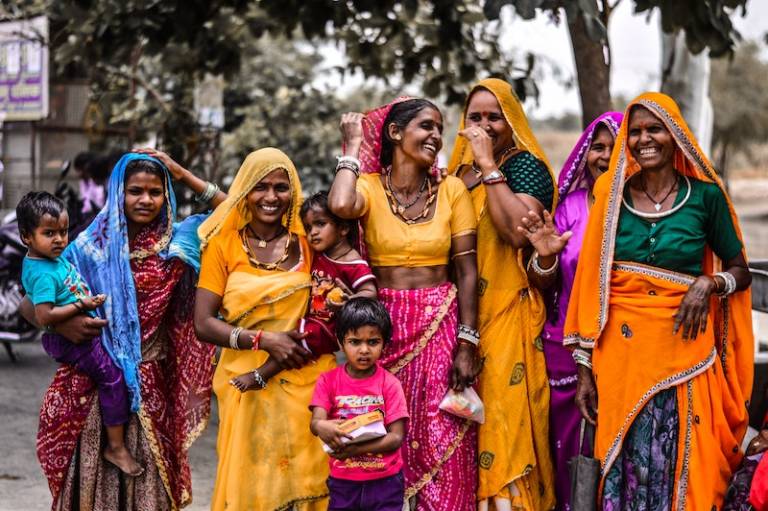A community-led intervention for undernutrition
UCL researchers worked with local community members to create a culturally-appropriate intervention.

4 March 2020
India has the highest rate of undernutrition in the world and this has a profound effect on the country’s health, education and economic productivity. There are several reasons for this high malnutrition rate, from a low literacy level to a lack of clean drinking water and sanitation.
The Banswara tribal district of Rajasthan is particularly affected. Only 0.8% of infants receive an adequate diet. UCL researchers worked with Indian colleagues and local community members to create a new culturally-appropriate intervention for child undernutrition.
The project team, led by Prof Monica Lakhanpaul (Institute of Child Health), Dr Priti Parikh (UCL Civil Environmental Geomatic Engineering) and Prof Marie Lall (Institute of Education), identified schools as community hubs. More than half the schools in the villages had an Anganwadi centre (rural child care centre) in the same building. With help from local representatives, the team designed and disseminated an intervention programme, including home visits, community meetings, video and puppet shows and visual tools.
This project is funded by the Global Challenges Research Fund and the Medical Research Council. It is a collaboration between UCL, Save the Children, Jawaharlal Nehru University and the Indian Institute of Technology Delhi.
Related links:
- PANChSHEEL (Participatory Approach for Nutrition in Children Strengthening Health Education Engineering and Environment Linkages)
- Prof Monica Lakhanpaul, Professor of Integrated Community Child Health at UCL Great Ormond Street Institute of Child Health
Photo of women and children in Rajasthan via Unsplash.com
 Close
Close

